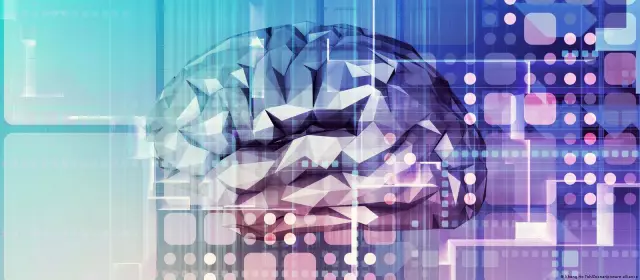- Author Rachel Wainwright wainwright@abchealthonline.com.
- Public 2023-12-15 07:39.
- Last modified 2025-11-02 20:14.
Déjà vu: 6 varieties of a common phenomenon
The effect of déjà vu (from the French déjà vu, "already seen") is very common. Psychologists say that about 97% of people experience such a state at least once in their life. With déjà vu, it seems to a person that the situation in the present repeats the one in which he already once fell, and he clearly realizes that this is impossible. Some kind of detachment from reality is observed, there is a simultaneous "living" of events in the past and in the present. The experienced impression is so strong that it leaves an indelible mark on the memory. Some people consider the phenomenon of déjà vu to be a sign of mental disorders and are hesitant to share their experiences with loved ones for fear that they will be considered unbalanced.

Source: depositphotos.com
In fact, the déjà vu phenomenon is neither a disease nor a symptom of any health problem. Most scientists consider it a consequence of a kind of "pranks" of the brain that occur during information processing. The immediate causes of the phenomenon have not yet been clarified, but the varieties of déjà vu have been studied, which we will tell the reader about.
Deja century
Deja century (from French déjà vécu, "already experienced") is a more detailed version of déjà vu. In this state, a person not only believes that he has already got into the current situation, but also “remembers” it in great detail. It seems to him that he recognizes sounds, smells, tactile sensations and can foresee events that will happen in the near future.
Deja visit
A variety of déjà vu associated with spatial sensations (from French déjà visité, “already visited”). This state is familiar to many. For example, you come to a strange city, knowing full well that you have not had the opportunity to explore it before, nevertheless, you “recognize” houses and streets and can even find the most convenient route between two objects without any problems.
Deja Senti
Unlike other varieties of déjà vu, deja senti (from the French déjà senti, “already felt”) does not leave a person with the painful impression that his own reaction to events is “wrong”. He simply experiences a fleeting sense of recognition triggered by smells or sounds. Most often, deja senti occurs under the influence of a human voice or music, as well as when reading.
Jamevue
The opposite of déjà vu. With jamevue (from French jamais vu, “never seen”), a person does not recognize the current situation or the place he has got into, realizing that in reality both the place and the situation are familiar and familiar to him. There are known variants of jamevue, when the faces of relatives and friends seem completely alien to people.
Preskevue
A very unpleasant and obsessive state, which is perfectly described by the expression "spinning on the tip of the tongue" (from the French presque vu, "almost seen"). Well-known information (word, title, name, etc.) seems to be instantly forgotten. She feels quite accessible, but she just can't be "grasped". In this case, a person usually has the mistaken belief that he knows exactly which letter or syllable the forgotten word begins with.
The state of preskevue causes discomfort, and its end (as sudden as the beginning) is perceived with great relief.
Wit on the stairs
A situation that is familiar to almost everyone: immediately after an important or too emotional conversation, successful objections come to mind that were not expressed in time (from the French l'esprit de l'escalier, "the spirit of the staircase"). In this case, a person is usually annoyed at his own lack of intelligence. In fact, quick wits have nothing to do with it. A simply overexcited brain cannot immediately move on to solving new problems, but replays the events that have already happened, looking over the possible options for their development.
The mechanism of déja vu is not fully understood, but it has been established that the condition has no direct connection with mental disorders, although it can occur with them. For most people, déjà vu is extremely rare. Presumably, the likelihood of their occurrence increases with overwork or severe stress. In any case, you should not be afraid of déjà vu. Only if conditions of this kind are often repeated and cause serious discomfort, it makes sense to consult a doctor.
YouTube video related to the article:

Maria Kulkes Medical journalist About the author
Education: First Moscow State Medical University named after I. M. Sechenov, specialty "General Medicine".
Found a mistake in the text? Select it and press Ctrl + Enter.






